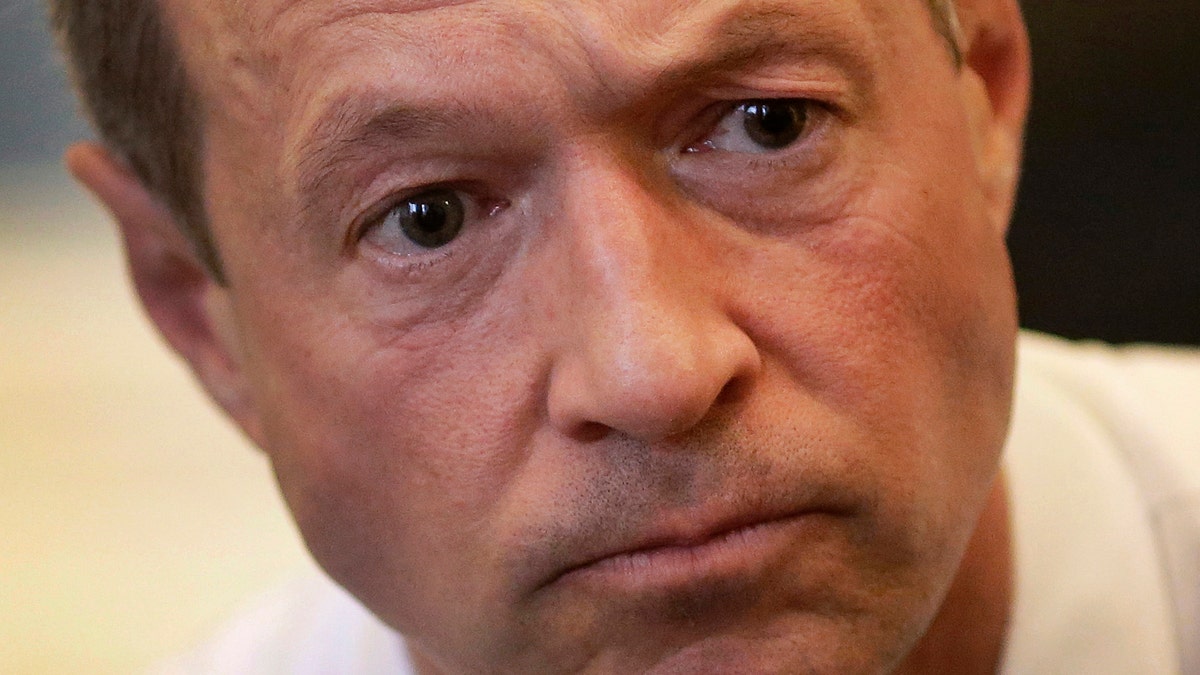
April 7, 2014: Maryland Gov. Martin O'Malley speaks with reporters in his office inside the Maryland State House in Annapolis, Md (AP)
Maryland governor Martin O’Malley will commute the sentences of four death-row inmates to life sentences without parole.
The state abolished capital punishment in 2013 leaving the five on death row. One of them, John Booth-El died in prison earlier in 2014.
The governor said he had met or spoken with many of the relatives of the people killed by the inmates. Some victim family members were upset with the governor’s decision.
O'Malley said that if he didn't commute the sentences the legal process would "needlessly and callously subject survivors, and the people of Maryland, to the ordeal of an endless appeals process, with unpredictable twists and turns, and without any hope of finality or closure."
None of the executions was imminent because the state didn't have a procedure to carry one out.
O'Malley, who is considering running for president in 2016, will leave office next month after two terms, the limit in Maryland. The governor is a Catholic and longtime opponent of capital punishment.
"We would like to thank Gov. O'Malley for taking what was a tough and courageous moral decision," Gary Proctor, one of the attorneys for death-row inmate Heath Burch, said in a statement. "It was indeed time that Maryland's machinery of death was consigned to the history books."
Mary Frances Moore, whose father and stepmother were stabbed to death in 1995, said she was “devastated” by the governor’s decision.
"I think he was hoping I would give him the OK on it, to give him life without parole, and I didn't give him that," Moore, 71, said Wednesday.
Baltimore County State's Attorney Scott Shellenberger, a death penalty supporter, criticized the governor's move. Two death-row inmates, Anthony Grandison and Vernon Evans, were convicted in the 1983 contract killing in Baltimore County of two witnesses who were scheduled to testify against Grandison in a federal drug case.
"Death was the decision of the jury. These sentences were lawfully imposed and upheld numerous times on appeal," Shellenberger said in a statement. "The governor should not be using his last days in office to show any mercy to these cold, calculating killers."
Gov.-elect Larry Hogan, a Republican who takes office Jan. 21, said he wasn't going to second-guess the decision.
"There is only one governor at a time, and I'm not in a place to second-guess what is probably one of the most difficult decisions a governor may have to make," Hogan said in a statement.
Only five Maryland inmates were executed since the death penalty was reinstated in 1978. The last execution was in 2005 under Republican Gov. Robert Ehrlich.
The Associated Press contributed to this report

